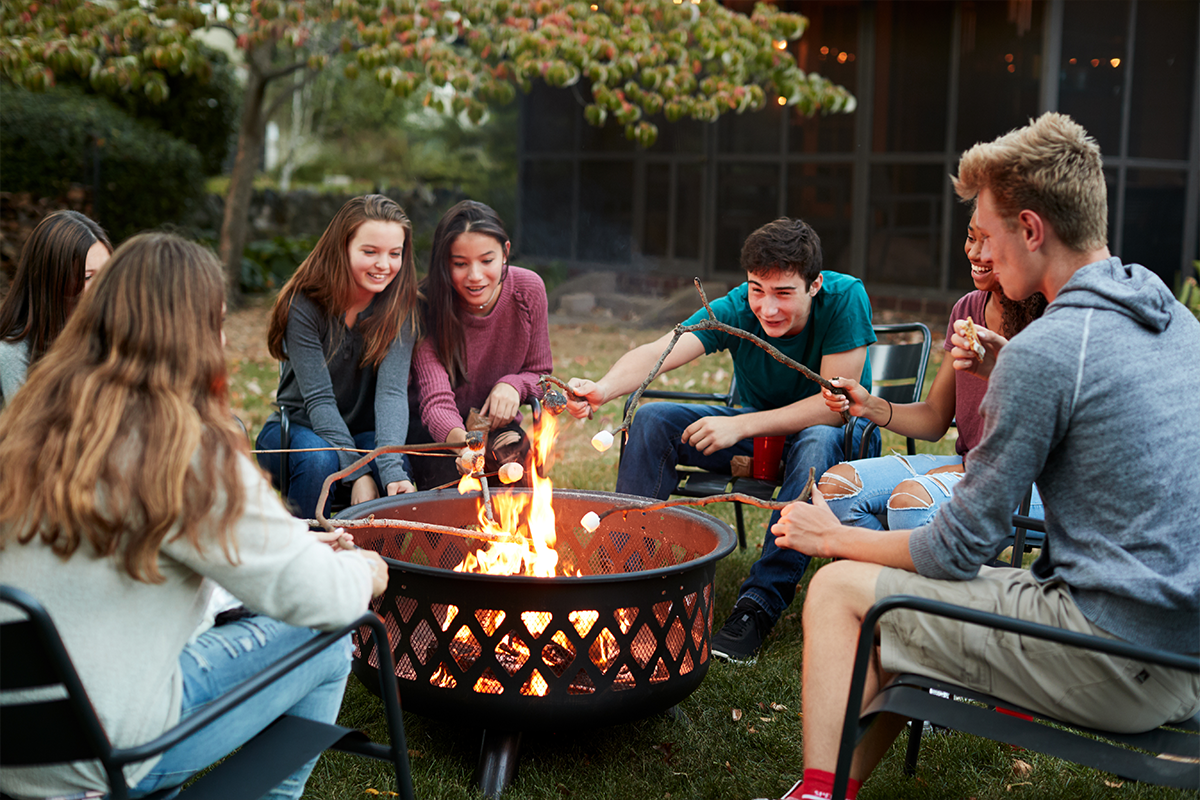Advertisement
Reclaiming the Power of Together
Humans are wired for connection. So much so, in fact, that we tend to live longer and healthier lives when we have strong relationships with others. Unfortunately, the past couple of years have brought an alarming increase in loneliness, contributing to declines in mental well-being across the globe. Luckily, we can build and nurture social … Continued
Fact-Checked
This article has been written and fact-checked by experts in the field.

Humans are wired for connection. So much so, in fact, that we tend to live longer and healthier lives when we have strong relationships with others. Unfortunately, the past couple of years have brought an alarming increase in loneliness, contributing to declines in mental well-being across the globe. Luckily, we can build and nurture social connection, reclaiming the powerful benefits of togetherness.
Advertisement
Modeling socialization
According to research conducted at the University of Chicago, before infants can even walk or talk, they can watch strangers interact and make inferences about whether they’re likely to become friends. By age one, toddlers consciously begin to mimic how their parents act in relationship to others. These processes of observation and imitation are critical for developing social skills and continue throughout childhood.
When we model and teach positive socialization habits to our kids, we set them up for success. In fact, studies show that children who enjoy close friendships from a young age have lower rates of anxiety and depression later in life.
Show kindness Say hello to others on the street or open the door for the person behind you. Engage in active listening Put away your phone, avoid interrupting, and give your full attention to the speaker (including when that speaker is a child!). Convey empathy See others’ perspectives and put yourself in their shoes. Emphasize quality over quantity More important than how many friends you have is your subjective perception of social support. Reflect on how appreciative you were for a close friend who dropped by for a visit (versus how many likes your most recent post got on Instagram).
Find everyday opportunities to model positive socialization
Advertisement
Helping kids with post-pandemic social anxiety
Living through a pandemic drastically modified childhood for many young people, with sporting events, birthday parties, and in-person school suspended for months at a time. This decrease in socialization opportunities contributed to a dramatic rise in anxiety disorders—nearly double from pre-pandemic rates—among young people.
After years of less frequent socialization, it makes sense that some kids feel on edge about re-entering social situations. And it’s certainly normal to feel a bit nervous about things like meeting new people or giving a speech in class. However, social anxiety becomes a problem when it interferes with kids’ quality of life or they begin to avoid social situations altogether. Imagine a child so nervous about saying something embarrassing that they decline going to a party they were looking forward to for weeks.
Parents play an important role in helping kids recognize, manage, and tackle their fears. In fact, a recent study found that the more parents respectfully helped their kids work through difficult emotions, the less impacted their kids were by pandemic-related stress.
Understand anxiety Work together to uncover the situations (going to a sleepover), thoughts (“Everybody will laugh at me if I say something wrong”), and physical sensations (stomach butterflies or racing heart) that accompany anxiety. Learn coping strategies Practise mindfulness and relaxation strategies to help your child “ride out” the physical sensations of anxiety. Strategize ways in which your child could cope if their “worst case scenario” happened, focusing on the things they can control (“If you said something embarrassing, what could you do next?”). Balance thinking Help your child evaluate how realistic their thoughts are (“Will everyone <really> laugh at you if you make a mistake, or does it just feel that way?”). Limit worrying media Some kids’ fears about re-entering social situations are focused on health-related worries (“What if I get sick?”). Restricting the amount and type of news and information kids are exposed to (while still being honest with them in age-appropriate ways) can buffer some of the impacts of pandemic-related anxiety.
Ways to help kids recognize, manage, and tackle fears
Advertisement
More green, less screen
Life is lived indoors (and in front of screens) more than ever before—and it may be affecting kids’ social skills. In fact, one study revealed that, after five days at a nature camp without access to screens, preteens were able to recognize nonverbal emotional cues more than a control group.
This finding isn’t all that surprising; in fact, Kerry Crofton, a public health educator and founder and CEO of the Canadian charity Global Alliance for Brain and Heart Health, says that the remedy for tech overload is time spent in nature. Crofton, who is the author of the mindful tech plan <Less Screen, More Green>, stresses that reaping the benefits of the great outdoors doesn’t have to be elaborate or lengthy.
Once a day Spend at least 20 minutes unplugged outside (such as playing in the backyard or taking a walk around the block). Once a week Plan a nature-based family activity (such as a picnic in the park, hiking a nature trail, or digging a garden patch). Ditch the guilt It’s the last thing busy parents need. Instead of ruminating on the extra TV time your kids had today, focus on the half-hour you spent watering the flowers together outside.
Bite-size goals for families
Of course, as anyone who’s been separated from loved ones knows, FaceTime can be a meaningful way to keep in touch. Where possible, socializing virtually should enhance—not replace—in-person connection.
Numerous studies show that a few good squeezes a day can boost mood and strengthen immunity.
Four hugs a day keep the doctor away
A study published earlier this year revealed that sharing laughs with others—more so than chuckling solo—can lower the risk of developing health problems as we age.
Laughter really is the best medicine
In one study, scientists found that the neural responses of close friends as they watched a series of videos were remarkably similar. In fact, the researchers could predict the strength of the pair’s friendship based on just their brain scans.
On the same brain wave





